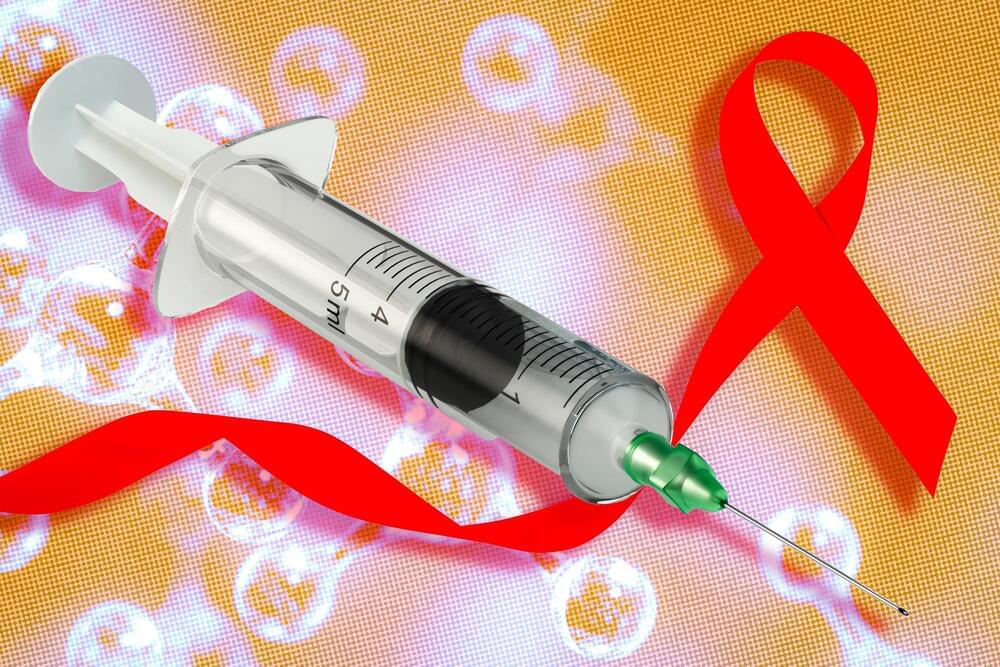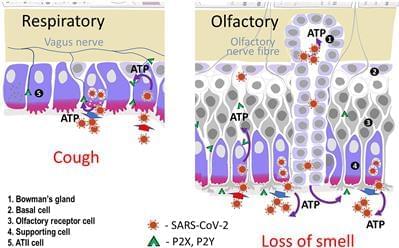Roddenberry Entertainment has created a non-fungible token (NFT) of sci-fi legend Gene Roddenberry’s signature on the first-ever Star Trek contract. It will be stored on the DNA code of bacteria.



Scientific ingenuity means cameras keep on getting smaller and smaller, and the latest to appear is not only incredibly tiny – the same size as a grain of salt – it’s also able to produce images of much better quality than a lot of other ultra-compact cameras.
Using a technology known as a metasurface, which is covered with 1.6 million cylindrical posts, the camera is able to capture full-color photos that are as good as images snapped by conventional lenses some half a million times bigger than this particular camera.
And the super-small contraption has the potential to be helpful in a whole range of scenarios, from helping miniature soft robots explore the world, to giving experts a better idea of what’s going on deep inside the human body.
Combining knowledge of chemistry, physics, biology, and engineering, scientists from McGill University develop a biomaterial tough enough to repair the heart, muscles, and vocal cords, representing a major advance in regenerative medicine.
“People recovering from heart damage often face a long and tricky journey. Healing is challenging because of the constant movement tissues must withstand as the heart beats. The same is true for vocal cords. Until now there was no injectable material strong enough for the job,” says Guangyu Bao, a PhD candidate in the Department of Mechanical Engineering at McGill University.
Science isn’t all lab coats and test tubes. Beautiful visuals can engage people—especially students—and inspire them to learn about science more broadly.
Scientists have often invited the public to see what they see, using everything from engraved woodblocks to electron microscopes to explore the complexity of the scientific enterprise and the beauty of life. Sharing these visions through illustrations, photography, and videos has allowed laypeople to explore a range of discoveries, from new bird species to the inner workings of the human cell.
As a neuroscience and bioscience researcher, I know that scientists are sometimes pigeonholed as white lab coats obsessed with charts and graphs. What that stereotype misses is their passion for science as a mode of discovery. That’s why scientists frequently turn to awe-inducing visualizations as a way to explain the unexplainable.
The BioArt Scientific Image and Video Competition, administered by the Federation of American Societies for Experimental Biology images with the public that are rarely seen outside the laboratory in order to introduce and educate laypeople about the wonder often associated with biological research. BioArt and similar contests reflect the lengthy history of using imagery to elucidate science.
A total solar eclipse occurred early this morning across one of our planet’s most remote and beautiful regions. It was, as always, utterly surreal.
For some, the 1 minute 30 seconds (or so) event at around 07:00 UTC was marred by low and high cloud in the Scotia Sea. There were 14 cruise ships in the 290 miles-wide path of totality, but so far there have been no reports of clear views.
While a view of the Sun’s corona–revealed only for the precious few moments of totality–is the big prize for eclipse-chasers, the immense scale of the event is always incredible to be a part of.
“We wound up much further to the north of where everyone else appeared to go around the South Orkney Islands,” said says Tyler Nordgren, a space artist and former astronomy educator who will be lecturing for Betchart Expeditions on the M/V Hondius. “But in the end, even though we had hints of sunlight at one point, all we experienced was the sudden rush of darkness as the moon’s shadow passed overhead.”
Full Story:

A common strategy to make vaccines more powerful is to deliver them along with an adjuvant — a compound that stimulates the immune system to produce a stronger response.
Researchers from MIT, the La Jolla Institute for Immunology, and other institutions have now designed a new nanoparticle adjuvant that may be more potent than others now in use. Studies in mice showed that it significantly improved antibody production following vaccination against HIV, diphtheria, and influenza.
“We started looking at this particular formulation and found that it was incredibly potent, better than almost anything else we had tried,” says Darrell Irvine, the Underwood-Prescott Professor with appointments in MIT’s departments of Biological Engineering and Materials Science and Engineering; an associate director of MIT’s Koch Institute for Integrative Cancer Research; and a member of the Ragon Institute of MGH, MIT, and Harvard.
Join us on Patreon!
https://www.patreon.com/MichaelLustgartenPhD
Papers referenced int the video:
Joint distribution of lipoprotein cholesterol classes. The Framingham study.
https://pubmed.ncbi.nlm.nih.gov/6573877/
Long-term coronary heart disease risk associated with very-low-density lipoprotein cholesterol in Chinese: the results of a 15-Year Chinese Multi-Provincial Cohort Study (CMCS)
https://pubmed.ncbi.nlm.nih.gov/20223457/
Red blood cell distribution width and cardiovascular diseases.
https://pubmed.ncbi.nlm.nih.gov/26623117/
Red blood cell distribution width is significantly associated with aging and gender.
https://pubmed.ncbi.nlm.nih.gov/24897405/
Red cell distribution width associations with clinical outcomes: A population-based cohort study.

This paper suggests that ATP release induced by the SARS-CoV-2 virus plays a key role in the genesis of the major symptoms and complications of COVID-19. Infection of specific cells which contain the Angiotensin-Converting Enzyme 2 (ACE2) receptor results in a loss of protection of the Mineralocorticoid Receptor (MR). Local activation by cortisol stimulates the release of ATP initially into the basolateral compartment and then by lysosomal exocytosis from the cell surface. This then acts on adjacent cells. In the nose ATP acts as a nociceptive stimulus which results in anosmia. It is suggested that a similar paracrine mechanism is responsible for the loss of taste. In the lung ATP release from type 2 alveolar cells produces the non-productive cough by acting on purinergic receptors on adjacent neuroepithelial cells and activating, via the vagus, the cough reflex. Infection of endothelial cells results in the exocytosis of WeibelPalade bodies. These contain the Von Willebrand Factor responsible for micro-clotting and angiopoietin-2 which increases vascular permeability and plays a key role in the Acute Respiratory Distress Syndrome. To test this hypothesis this paper reports proof of concept studies in which MR blockade using spironolactone and low dose dexamethasone (SpiDex) was given to PCR-confirmed COVID-19 patients. In 80 patients with moderate to severe respiratory failure 40 were given SpiDex and 40 conventional treatment with high dose dexamethasone (HiDex). There was 1 death in the HiDex group and none in the SpiDex. As judged by clinical, biochemical and radiological parameters there were clear statistically significant benefits of SpiDex in comparison to HiDex. A further 20 outpatients with COVID-19 were given SpiDex. There was no control group and the aim was to demonstrate safety. No adverse effects were noted and no patient became hyperkalaemic. 90% were asymptomatic at 10 days. The very positive results suggest that blockade of the MR can produce major benefit in COVID19 patients. Further larger controlled studies of inpatients and outpatients are required not only for SARS-CoV-2 infection per se but also to determine if this treatment affects the incidence of Long COVID.
Early in the course of the SARS-CoV-2 pandemic it became clear that one of the commonest symptoms was loss of smell and/or taste. Self-reported alterations in smell and taste were detailed in a meta-analysis of 3,563 confirmed cases of COVID-19. They found that the overall prevalence of smell or taste impairment was 47% rising to 67% in patients with more severe disease. In about 20% of patients it was an isolated presenting symptom. Han et al. reviewed the pathophysiology of anosmia in upper respiratory tract infections. Many rhinovirus infections of the nasal olfactory epithelium produce post-viral anosmia which persists for weeks or months until the cell damage is repaired. Post-viral anosmia has been reported with HCoV-229E infection with the olfactory dysfunction lasting more than 6 months. This corona virus does not use ACE2 to get into cells. Conductive or obstructive anosmia is often found with the common cold virus.
Paradromics is a company developing brain computer interfaces that will help people with disabilities in communicating again. Their product will be the brain computer interface with the highest data rate ever developed. Will it compete with other companies like Neuralink or Kernel in the race to reading the brain?
0:00 Introduction to Paradromics.
1:45 The Product.
5:57 The Surgery.
7:41 Commercial availability.
Check out also this video on another Neuralink competitor, Kernel: https://youtu.be/DUICwT-fqt0
Subscribe for more content! 👇
–
Sources:
Official Paradromics website: https://paradromics.com/
Paper — Laser Ablation of the Pia Mater for Insertion of High-Density Microelectrode Arrays in a Translational Sheep Model https://www.biorxiv.org/content/10.1101/2020.08.27.269233v2
Paper — The Argo: A 65,536 channel recording system for high density neural recording in vivo https://www.biorxiv.org/content/10.1101/2020.07.17.209403v1.full.
Paper — The Argo: a high channel count recording system for neural recording in vivo https://iopscience.iop.org/article/10.1088/1741-2552/abd0ce.
Paper — Massively parallel microwire arrays integrated with CMOS chips for neural recording https://advances.sciencemag.org/content/6/12/eaay2789
Towards a High-Resolution, Implantable Neural Interface https://www.darpa.mil/news-events/2017-07-10
Matt Angle with an update from Paradromics and their new Neurotech Pub Podcast https://www.youtube.com/watch?v=oSZGk3Smhsc.
The Data Organ: Paradromics CEO Matt Angle On The Future Of The Brain-Computer Interface https://www.forbes.com/sites/johncumbers/2020/04/19/the-data…80a603d4ed.
–
Boyden’s award-winning research has led to tools that can activate or silence neurons with light, enabling the causal assessment of how specific neurons contribute to normal and pathological brain functions.
Ed Boyden is the founder and principal investigator of the Synthetic Neurobiology Group at Massachusetts Institute of Technology (MIT). The group develops tools for controlling and observing the dynamic circuits of the brain, and uses these neurotechnologies to understand how cognition and emotion arise from brain network operation, as well as to enable systematic repair of intractable brain disorders such as epilepsy, Parkinson’s disease, post-traumatic stress disorder, and chronic pain.
Many disorders of the brain currently are treated with drugs or electrical stimulation. Nearly a quarter of million people have implanted electrical probes in their brains for such stimulation. The problem with this approach is that it targets large areas of the brain instead of the discrete cells or location that cause the disorder. Boyden works on implementing light-stimulated processes in the brain to address these disorders at the cellular level. The method utilizes adeno-associated viruses (AAV) to create light-sensitive centers in the brain which can then be stimulated by light pulses. Very small optical waveguides (fibers) can then be introduced in the brain to stimulate these sites.
Boyden was named to the “Top 35 Innovators Under the Age of 35″ by Technology Review and to the “Top 20 Brains Under Age 40″ by Discover, and has received the NIH Director’s New Innovator Award, the Society for Neuroscience Research Award for Innovation in Neuroscience, and the Paul Allen Distinguished Investigator Award, as well as numerous other recognitions. In early 2011, he was an invited speaker at the renowned TED conference, sharing the bill with a high-powered lineup that included presenters as diverse as Bill Gates and choreographer Julie Taymor.
He has contributed numerous articles to SPIE Proceedings, and was an invited speaker at the Biomedical Optics Hot Topics Session at SPIE Photonics West 2011.